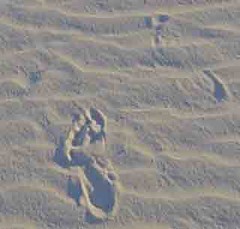 What do you want to be when you grow up? The answer is very often influenced by the kind of person who you view as a role model. Role models inspire. Role models resonate with what we want to be. A role model has to walk the talk. Authority figures are inevitably burdened with the task of being exemplary in their conduct at all times. Parents of very young children realize that the children tend to emulate their behavior whether or not it is appropriate or even safe. Many parents have walked in to discover their three year old trying to apply lipstick like Mummy or shave like Daddy – sometimes with disastrous results.We learn our values from the role models around. There probably aren’t too many parents who tell their children to be dishonest or to take the crooked path. Yet, enough youngsters have learnt that their parents do not follow the advice they dish out. While the parent tells the kid to tell the truth, they find the parent lying (“Tell him Daddy is not home.”). BBC quotes research to say seeing violence perpetuated between parents was found the be the greatest risk factor for being the victim of a violent partner as an adult. Both men and women who witnessed domestic violence were likely to grow up to abuse their partners.We pick up a lot of our values, attitudes and beliefs from the influences around us. A lot of our beliefs about love, marriage, punishment, work ethics etc are what we saw around us as we grew up. A study of 226 families by Plymouth’s Peninsula Medical School found obese mothers were 10 times more likely to have obese daughters. For fathers and sons, there was a six-fold rise. But in both cases children of the opposite sex were not affected. A Department for Children, Families and Schools study quoted by BBC suggests children from heavy-drinking households are more likely to use alcohol themselves.In the words of Graham Nash”Teach, your children wellTheir father’s hellDid slowly go byAnd feed them on your dreamsThe one they pick’sThe one you’ll know by.Don’t you ever ask them whyIf they told you, you would dieSo just look at them and sighAnd know they love you.”Values are what we choose to do when no one is looking. Of course there is a change in behavior in all of us when we believe someone is watching. Research completed by Newcastle university demonstrated that people put almost 3 times the amount of money into an honesty box for hot drinks when the poster with prices featured eyes rather than flowers.Do we look for role models even in the workplace? The resounding answer to that clearly is a yes. The first manager is surely a role model for those who are starting their careers. At Wipro we recently did a study on 60 people who were voted as the Best People Managers. What made them the best? One clear differential was the low attrition in their teams. Even in a market where demand far outstrips supply, departures from their teams seem to be negligible or certainly way lower than in other parts of the organization. What makes people give up the options outside to stay with these managers? For one they tend to do all the ordinary things like goal setting, communication regularly and with sincerity. They celebrate the success of their team members – often in innovative ways. The people managers clearly spend a lot of time building talent. They coach team members by having regular feedback and developmental discussions. What was the one big insight for me in doing this study? When you ask them where they learnt all this, they all say that they saw their managers invest in others careers. So clearly managers do become role models. Those who invest in others create an impact that lasts well beyond themselves. The greatest role models are those who make us what we are capable of becoming.
What do you want to be when you grow up? The answer is very often influenced by the kind of person who you view as a role model. Role models inspire. Role models resonate with what we want to be. A role model has to walk the talk. Authority figures are inevitably burdened with the task of being exemplary in their conduct at all times. Parents of very young children realize that the children tend to emulate their behavior whether or not it is appropriate or even safe. Many parents have walked in to discover their three year old trying to apply lipstick like Mummy or shave like Daddy – sometimes with disastrous results.We learn our values from the role models around. There probably aren’t too many parents who tell their children to be dishonest or to take the crooked path. Yet, enough youngsters have learnt that their parents do not follow the advice they dish out. While the parent tells the kid to tell the truth, they find the parent lying (“Tell him Daddy is not home.”). BBC quotes research to say seeing violence perpetuated between parents was found the be the greatest risk factor for being the victim of a violent partner as an adult. Both men and women who witnessed domestic violence were likely to grow up to abuse their partners.We pick up a lot of our values, attitudes and beliefs from the influences around us. A lot of our beliefs about love, marriage, punishment, work ethics etc are what we saw around us as we grew up. A study of 226 families by Plymouth’s Peninsula Medical School found obese mothers were 10 times more likely to have obese daughters. For fathers and sons, there was a six-fold rise. But in both cases children of the opposite sex were not affected. A Department for Children, Families and Schools study quoted by BBC suggests children from heavy-drinking households are more likely to use alcohol themselves.In the words of Graham Nash”Teach, your children wellTheir father’s hellDid slowly go byAnd feed them on your dreamsThe one they pick’sThe one you’ll know by.Don’t you ever ask them whyIf they told you, you would dieSo just look at them and sighAnd know they love you.”Values are what we choose to do when no one is looking. Of course there is a change in behavior in all of us when we believe someone is watching. Research completed by Newcastle university demonstrated that people put almost 3 times the amount of money into an honesty box for hot drinks when the poster with prices featured eyes rather than flowers.Do we look for role models even in the workplace? The resounding answer to that clearly is a yes. The first manager is surely a role model for those who are starting their careers. At Wipro we recently did a study on 60 people who were voted as the Best People Managers. What made them the best? One clear differential was the low attrition in their teams. Even in a market where demand far outstrips supply, departures from their teams seem to be negligible or certainly way lower than in other parts of the organization. What makes people give up the options outside to stay with these managers? For one they tend to do all the ordinary things like goal setting, communication regularly and with sincerity. They celebrate the success of their team members – often in innovative ways. The people managers clearly spend a lot of time building talent. They coach team members by having regular feedback and developmental discussions. What was the one big insight for me in doing this study? When you ask them where they learnt all this, they all say that they saw their managers invest in others careers. So clearly managers do become role models. Those who invest in others create an impact that lasts well beyond themselves. The greatest role models are those who make us what we are capable of becoming.
—
Written By
The Value of Role Models
Comments
6 responses to “The Value of Role Models”
-
Role models are important at all stages of life and in the workplace they are most effective when they are made mentors.Being a role model is a humbling task, and its important to realise that it comes with greater responsibility. It takes one bad move to ruin what a role model would have gained through ages. Also, with the growing level of competence and with the taste of success, role models shouldn’t forget where they come from, how they got to where they are and will they be in a position to help those who come from similar backgrounds.Nice post and particularly like your writing style – always to the point!
-
I had started out in advertising in Ogilvy at a time when they used to invest heavily in learning and development. My first boss was someone who believed in training and spent valuable time creating and imparting learning content. He was encouraged in this because the MD of Ogilvy at that time (the late Mani Ayer), who was his supervisor for a long time, believed in and spent time in training.After his retirement Mani Ayer headed MICA (the Mudra Institute of Communication and Advertising), my ex boss Sumit Roy runs an L&D practice, I have quit advertising and spend a large amount of time facilitating OD interventions and L&D programmes! There are at least two others I know from around that time in Ogilvy, who worked directly with Mani Ayer, who are plying the same trade.Oh yes! Role models do play a huge role in our lives.
-
Hello AB,You are my Role Model.Milli
-
Hi AbhijitYou are absolutely right on the examples. Two things I would like to mention–Nothing in the world can shake my integrity and honesty and this is a value I indirectly picked up from my dad who despite being at a senior position in the Indian government refused to accept a penny as bribe. In fact, I have had lots of arguments on what is ethical and what is not with my friends and I refused to change. So guess somewhere it has a very deep rooting.On the other hand, I find many folks in the corporate world who are not good role models but are very diplomatic and also know how to suck up to their bosses. When i was very new in the corporate world I would see these people and always think that sooner or later these people would be thrown out. But I am surprised to see many of these people have really risen up in the corporate ladder. And yet till date they are not role models and they succeed by scheming. So the question that comes to my mind is why can’t we as leaders help in cleaning up the system of such people or putting them on corrective action plans for not being good role models? Why do we promote such people on the other hand?
-
thanks for the reminding us on the importance of role models. In the caribbean there is a growing need for role models. This is indispensible.regardsvincent
-
Shami said ….Nice website, I want to make an offer mutually beneficial to you, to up our income from website. if you are interested please,ThanksTafreehmazaonline.com


Leave a Reply to vincent Cancel reply